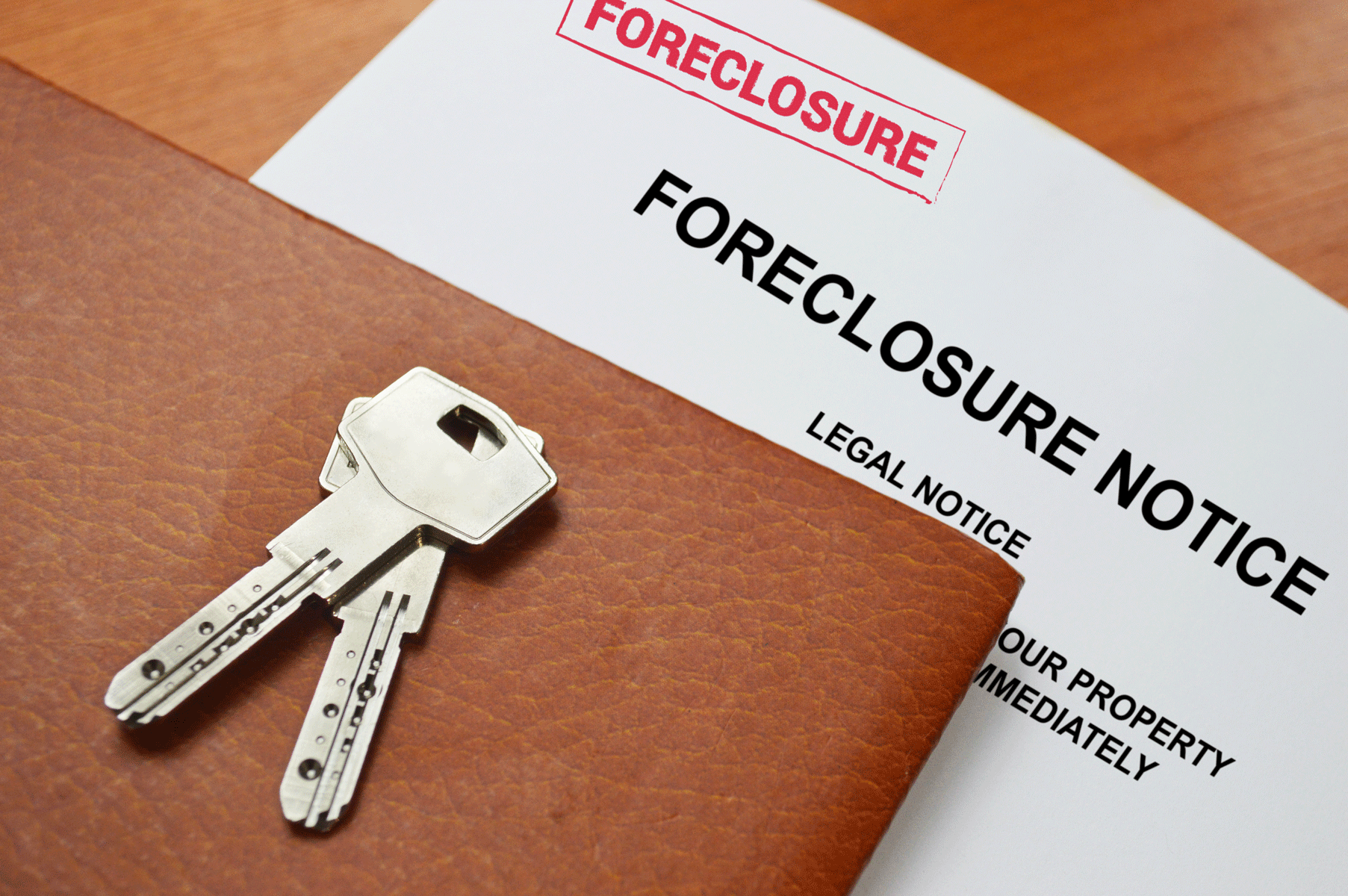Foreclosure & Short Sale
Foreclosure & Short Sale
The Stress of Foreclosure
Imagine that you have just purchased your home. You made the purchase because you wanted a place to call your own – a place where you can make memories with the people you love and unwind after a long day. You can already picture how you’re going to decorate each room and the get-togethers you’re going to host. It’s a new and exciting experience, and it starts the second you open the front door to your brand-new home.
But then life happens, and this scene changes within the blink of an eye.
Now, your home is no longer somewhere that you can feel at peace. All of the happy memories you’ve made while living there are slowly becoming covered by constant phone calls from the bank, threatening to foreclose on your home. Unwinding seems impossible when you’re faced with anxiety-inducing letters and voicemails telling you that time is running out before your home is taken from your grasp. You feel incredibly stressed and lost, but it feels like you have no one you can turn to for help.
If this scenario sounds familiar, we can assure you that not all hope is lost. At Rivertown Law, we can offer you guidance and support during this difficult time, helping you find a solution that works. Our team can analyze your circumstances to find different options specific to your case so you can repay delinquent payments and move forward.
By providing foreclosure defense and forcing the bank to prove its case against your home and happiness, Rivertown Law will get you the additional time you need to assess alternatives, such as short sales or loan modifications. No matter where you are in the foreclosure process, we can help.
Mortgage Loan Modifications
Obtaining a loan modification is an alternative option that may be available to you and is one of the most common forms of aid provided to homeowners at risk of foreclosure. A loan modification is a permanent change of a lender’s loan terms. This can help bridge the gap between the you and the lender to reach an agreement that better accommodates both of your needs.
Compared to the expense of completing a typical foreclosure, loan modifications are a preferred alternative to a foreclosure because of the reduced cost to both the lender and borrower. It tends to serve as a “middle ground” form of alternative by reflecting the desires of both entities involved.
This may make achieving a loan modification look like a simple process, but obtaining one can be incredibly time consuming and can have negative effects on your credit score. Loan modifications may involve increasing interest rates or lengthening the loan altogether, all of which have the potential to create further complications in the future if the process isn’t done clearly and carefully. Nonetheless, coming to an agreement with your lender on modifying your loan can do a considerable amount to relieve your stress and fit your needs.
Short Selling to Avoid Foreclosure
Even if you don’t currently have any equity, you still can sell your home through a process called a short sale. Short sales, otherwise known as pre-foreclosure sales, are transactions that allow you to sell your home for a price less than what you currently owe on your mortgage. This sale has to be approved by your lender and can vary in the length of time it takes to get finalized, but can lessen the impact of an impending foreclosure on your financial record. Generally speaking, the process goes as follows:
Filing a Hardship Letter
To be considered for a short sale, you will need to file a hardship letter with your lender detailing why you aren’t able to repay the remainder of your mortgage. This will need to be sent alongside supporting evidence in the form of documentation like tax returns. This is one of the harder steps in the short sale process, as it is up to your lender to decide whether or not to agree to the short sale. If you’ve had recent financial hardships as opposed to long withstanding hardships that have remained undisclosed to your lender, you are generally more likely to be approved to conduct a short sale.
If you’re approved, the next phase of the short sale process can begin.
After The Approval
After getting approved to continue with a short sale, the sale proceeds in a similar manner as a regular real estate deal. Your property will be listed and specifically noted as a short sale, which tends to attract home-flippers and younger home buyers due to the generally lower prices. This price will be “short” of the remaining cost of your mortgage, which is where the term “short sale” comes in. All offers made on the property will be sent to the lender, not to you.
If Your Home Is Sold
If your lender accepts an offer made on your property and sells it to the interested buyer, they will collect the profits made on the sale. It is up to them to decide whether or not they’ll forgive the remaining difference from the remainder of your mortgage loan and your short sale price. Some states require that the lender forgives the difference if the home is sold in a short sale, but South Carolina reserves the decision for the lender.
If your lender requires you to pay for the remaining cost they will get a deficiency judgement against you, which outlines the remaining amount that you will be required to pay since your short sale did not cover the full cost. If you are adamant about avoiding a deficiency judgement, you should consider to outline in your initial agreement with your lender that the short sale will serve as a satisfactory agent to cover your remaining debt.
Bankruptcy if There’s No Other Solution
Another option that you may want to consider is filing for bankruptcy. This allows you to restructure your debt and prevent you from losing your home. When you file for bankruptcy you’ll enter into an automatic stay, which stops any and all collection activity against you. Filing for bankruptcy can provide you with the additional time you need to build your funds back up and get your affairs back in order before you resume your payments. This prevents financial hardships from stacking up against you and may even result in some of your debts being canceled in the process.
Though there are advantages in filing bankruptcy, it isn’t a decision to take lightly. Filing for bankruptcy is often regarded as an extreme measure and doesn’t necessarily stop all of your debts. Once the bankruptcy has ended, collection activity against you is able to resume. Any lawsuits or debt collections that are still active after the bankruptcy ends can require payment, potentially placing you in the same position you started in.
Which Alternative Is Right For Me?
With a number of different alternatives to foreclosure all consisting of lengthy processes presented before you, it can be hard to figure out which one is the best fit for your individual circumstances. Different websites with debt calculators and short questionnaires may attempt to suggest the best alternative, but none take into account the specifics of your situation and your personal needs.
This is where Rivertown Law comes in.
Our team will work with you to shed some light on the best path for you to take in selecting an alternative measure against foreclosure. We will provide any legal assistance necessary in achieving the best possible outcome for your foreclosure case. At the end of the day, we’ll do whatever we can to help you protect what matters most: your home and your happiness.
Get the proper legal assistance you need to protect what matters: Contact Rivertown Law today to schedule a consultation with one of our attorneys that will work diligently and effectively on your foreclosure & short sale matters.
Get A Case Evaluation
We are here to help you with law questions







